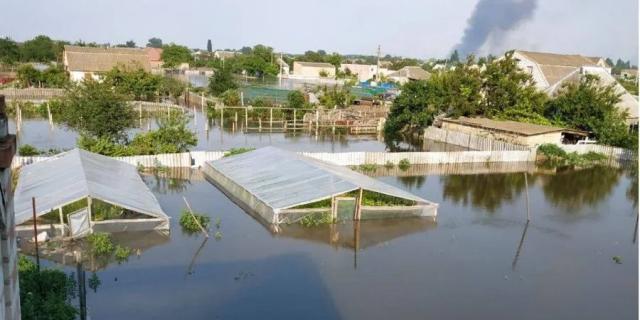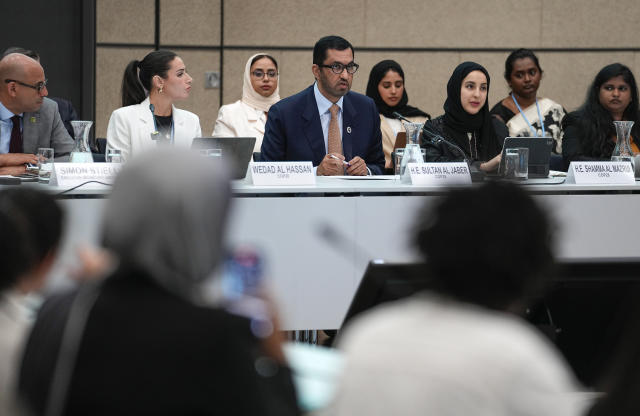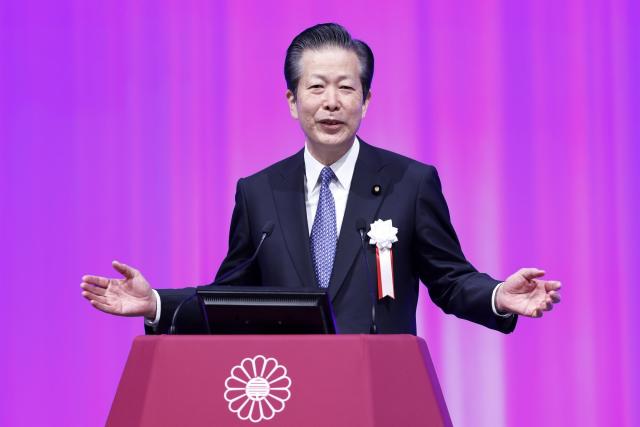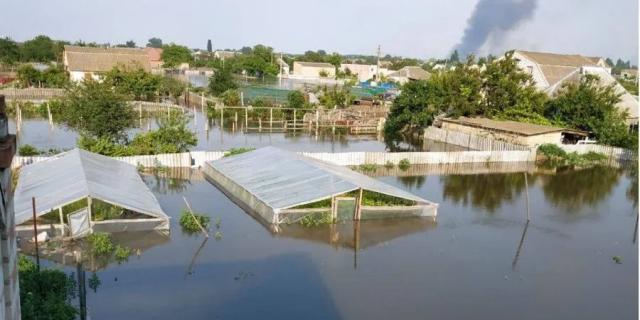World Geography And Politics Daily News | 09 Jun 2023

Views (178)

Trump Asks for New Carroll Trial or $4 Million Cut to Damages
(Bloomberg) -- Former President Donald Trump asked a judge to grant him a new trial in the sexual assault and defamation suit filed against him by New York author E. Jean Carroll — or to sharply reduce the $5 million damages he was ordered to pay.Most Read from BloombergRussian Elite Is Souring on Putin’s Chances of Winning His WarAmericans Are Leaving Portugal as Golden Visa Honeymoon EndsLeaving New York for Miami Can Save Nearly $200,000S&P 500 Enters Bull Market as Tech Rally Resumes: Market

(Bloomberg) -- Former President Donald Trump asked a judge to grant him a new trial in the sexual assault and defamation suit filed against him by New York author E. Jean Carroll — or to sharply reduce the $5 million damages he was ordered to pay.
Most Read from Bloomberg
In a Thursday filing in Manhattan federal court, Trump said the May 9 jury award was “grossly excessive” because the panel found him liable for sexual abuse but not rape.
“Such abuse could have included groping Plaintiff’s breasts through clothing or similar conduct, which is a far cry from rape,” Trump’s lawyer Joe Tacopina argued in the filing.
If the judge declines to order a new trial, the damages should be cut by more than $4 million, Tacopina said. The lawyer said an award of in the “low six-figure range” for the abuse finding would be consistent with other verdicts “in favor of plaintiffs whose intimate parts were groped by a defendant.”
Roberta Kaplan, Carroll’s lawyer, called Trump’s arguments against the damages award “frivolous” in a Thursday statement.
“The jury carefully considered the evidence that Ms. Carroll presented, and Trump did not put on a single witness of his own,” Kaplan said. “This time, Trump will not be able to escape the consequences of his actions.”
Trump has also appealed the verdict. The jury found that Trump sexually abused Carroll in a dressing room of the Bergdorf Goodman department store in 1996 and then defamed her by publicly denying it more than decades later. But the panel did not find Trump liable for rape, which largely refers to intercourse under New York law.
In Thursday’s filing, Trump said the damages were “clearly motivated by sympathy rather than by evidence of harm.” He also said that, because Carroll’s defamation claim was largely based on his denial of her rape allegation, it failed to the extent that the jury found him not liable for rape.
Read More: Trump Liable for Sex Abuse, Must Pay $5 Million to Carroll
(Updates with comment from Carroll’s lawyer.)
Most Read from Bloomberg Businessweek
©2023 Bloomberg L.P.
UAE's al-Jaber promises young activists he'll listen; says nothing about fossil fuel ties
The United Arab Emirates official tapped to head the next global climate summit pledged Thursday to listen to young people demanding a place at the table when negotiators gather in the Gulf nation this fall, but offered no response to criticism of his links with fossil fuel interests. In his first appearance at a United Nations climate meeting this year, the UAE's Minister of Industry Sultan al-Jaber said he wants the COP28 summit in Dubai to be "inclusive" and deliver a “game-changing outcome”

In his first appearance at a United Nations climate meeting this year, the UAE's Minister of Industry Sultan al-Jaber said he wants the COP28 summit in Dubai to be "inclusive" and deliver a “game-changing outcome” for international efforts to tackle climate change.
“I’m determined to make your participation successful,” he said in a brief speech to delegates from youth activist groups that have been clamoring for leaders to take drastic action against global warming.
The comments by al-Jaber in Bonn, Germany, drew a wary response from his audience.
“Many people, including children and youth all over the world, are rightly concerned about your ties and links to the fossil fuel industry and thereby the integrity of the (U.N. talks)," Clara von Glasow of the Youth Climate Movement, an international network of more than 1000 campaign groups, told al-Jaber. “This is your time to prove them wrong and show that indeed you are serious.”
“You have the unique opportunity, a huge chance to demonstrate leadership,” she said. "You can become the champion of change and make sure we phase out fossil fuels immediately.”
Speaking later Thursday at a diplomatic reception, al-Jaber called for “a just and balanced energy transition that leaves no one behind."
The goal should be a global energy system “free of unabated fossil fuels," he said. The term abated refers to measures taken to reduce or capture greenhouse gas emissions from the burning of fossil fuels, an idea that experts say is technically challenging and very expensive.
“There is no such thing as an emissions-free fossil fuel," said Hanna Fekete of the NewClimate think tank. “It is always more efficient to produce renewable energy and to use that directly.”
Fekete published a report Thursday with the group Climate Action Tracker showing that many major producers of oil and gas, including the UAE and the United States, are currently increasing production.
“The sector is acting like there’s a gold rush, not a climate crisis,” the authors warned.
That runs counter to countries' pledge at a 2015 summit in Paris to try to limit global warming to 1.5 degrees Celsius (2.7 Fahrenheit) compared with pre-industrial times. Scientists say that in order to achieve that goal, carbon emissions need to be halved by 2030 and reach ‘net zero’ by mid-century.
Outside the venue, bus stops were plastered with posters highlighting al-Jaber's ties to the oil industry. Inside, activists dropped a huge banner that read “End Fossil Fuels.”
Alden Meyer, a long-time observer of climate negotiations now with the Brussels-based group E3G, said past summit chairs have succeeded best when they've set aside their own national interests to find agreements acceptable to all the nearly 200 countries taking part in the talks.
“There’s a real question whether Dr. al-Jaber wants to do that, is able to do that and is being given permission from the UAE leadership to do that," said Meyer. "He needs to disassociate himself from the UAE as a major oil and gas producer that wants to expand production if he wants to have a successful COP.”
Still, al-Jaber's acknowledgement of the need to “phase down” fossil fuels was a useful first step, Meyer said, adding that a discussion about this needs to happen in Dubai.
His comments were echoed by Mohamed Adow, who runs the Nairobi-based group Power Shift Africa.
“Al-Jaber is right to acknowledge that a phasedown of fossil fuels is inevitable," he said.
“Doing this in a managed way would be good news for the UAE,” he said, noting the Gulf nation has ample sun and wind for renewable energy.
“The clean energy wave is coming,” Adow said. "Countries can either surf the wave or get washed away by it.”
Coalition Cracks May Not Stop Japan’s Kishida From Calling Early Vote
(Bloomberg) -- Japanese Prime Minister Fumio Kishida may head into an early election despite a public rift in his 24-year-old coalition, given that putting off the vote would be an even more unpalatable prospect.Most Read from BloombergRussian Elite Is Souring on Putin’s Chances of Winning His WarAmericans Are Leaving Portugal as Golden Visa Honeymoon EndsLeaving New York for Miami Can Save Nearly $200,000S&P 500 Enters Bull Market as Tech Rally Resumes: Markets WrapBonds Everywhere Suffer as Ra

(Bloomberg) -- Japanese Prime Minister Fumio Kishida may head into an early election despite a public rift in his 24-year-old coalition, given that putting off the vote would be an even more unpalatable prospect.
Most Read from Bloomberg
A stock market at three-decade highs, an economy expanding faster than expected and a rise in poll numbers could lead to Kishida to call a general election in July or the autumn. This is before he needs to decide in late 2023 how to fund increased spending on defense and boosting the birthrate — which may mean unpopular tax hikes.
But a battle over rights to field candidates in Tokyo constituencies prompted Kishida’s junior coalition partner Komeito, which has a powerful political machine to turn out voters, to cut off cooperation with the premier’s Liberal Democratic Party in the capital.
While Kishida need not go to the polls until 2025, renewing his mandate would help him keep a grip on his party and win reelection as LDP leader in September 2024, giving him more time to pursue his goals of better pay and a more dynamic economy.
“The LDP absolutely hates to go into an election on a platform of increasing the burden on the public,” said Katsuyuki Yakushiji, a politics professor at Toyo University. “So that means they have to hold it by the autumn.”
The prime minister’s support rate jumped to its highest in nearly a year after he hosted the Group of Seven summit in his hometown of Hiroshima in late May, stirring speculation he could go to the people. His approval remained largely unchanged at 46.7% in a poll carried out by news network JNN on June 3-4, supporting views that an election is coming.
Kishida’s LDP looks to be clearing the decks by pushing bills through parliament ahead of the June 21 end of the session and picking candidates for remaining constituencies.
The LDP and Komeito are all but certain to keep their majority in parliament given the relatively low support rates for the opposition. But the friction could led to a few embarrassing losses and embolden parties trying to push out the LDP, which has ruled almost continuously since its founding in 1955.
“They still provide 6 million votes,” said Tomoaki Iwai, an emeritus professor of political science at Nihon University in Tokyo, said of Komeito. He added this can mean 10,000-20,000 in a constituency, and bring to bear “enormous influence” on results.
Komeito, locked in an unlikely coalition since 1999 with the right-leaning LDP, gets a seat in the cabinet and uses its position to aid lower-income groups and try to fend off any drastic changes to the country’s pacifist policies.
The dispute came after Japan’s biggest shake-up of constituency boundaries, reflecting the population drift from the ruling LDP’s rural strongholds to urban areas.
“It’s much more serious than any other time the LDP and Komeito have had trouble cooperating,” said Steven Reed, an emeritus professor at Chuo University and author of books on Komeito and Japan’s elections.
Japan’s Kishida Unveils Policy Proposal Ahead of Potential Polls
The party that could benefit the most is the right-leaning Nippon Ishin no Kai, which is strong in Osaka and looking to grab seats in the capital. Ishin aims to replace the left-leaning Constitutional Democratic Party as the largest opposition group.
A poll conducted by the Mainichi newspaper May 20-21 found 47% of respondents said Ishin should be the biggest opposition party. About 17% said they supported the group, compared with 9% for the CDP.
If Ishin becomes a convincing opposition force, something Japan has lacked for a decade, it will seek to push LDP policies in a different direction. Ishin prioritizes cost-cutting and avoiding tax hikes. It also favors changing the pacifist Article 9 of the Constitution.
But some analysts say animosity in the ruling coalition is unlikely to overturn ingrained voting patterns among Komeito supporters.
“I don’t think these voters will say: We are not allowed to vote for the LDP,” said Axel Klein, a social sciences professor at the Institute of East Asia Studies at the University of Duisburg-Essen. “Who else would they vote for? I think the consequences of this division won’t be as severe for the LDP as it might look at the moment.”
Komeito leader Natsuo Yamaguchi has said the alliance is strong, even as a poll showed a majority of LDP supporters think it should be dissolved.
“Komeito’s presence in the coalition government is extremely important,” Yamaguchi told reporters after meeting Kishida at his official residence May 30. “I don’t at present see any other combination or form of government that could take its place.”
Most Read from Bloomberg Businessweek
©2023 Bloomberg L.P.
The 11 UK universities accused of helping to develop Iran's 'suicide drones'
The University of Cambridge is among almost a dozen UK universities accused of helping to develop Iran’s weapons including “suicide drones”.

Britain bans the export of military technology to Iran as well as “dual use” technology which can be used for both civilian and military applications.
In response to the findings, reported by The Jewish Chronicle, MPs have called for ministers to launch an investigation into how the academic research was carried out as the Government said that Britain would “not accept collaborations which compromise our national security”.
At least 11 British universities are involved, with staff producing at least 16 studies with potential Iranian military applications.
Key pieces of research have been conducted by academics at the University of Cambridge, Imperial College London, the University of Glasgow, Cranfield University and Northumbria University.
In one project, funded by Tehran, researchers in the UK worked to improve drone engines by boosting their altitude, speed and range. Another British university worked with Iranian researchers to test new controls for jet engines to increase their “manoeuvrability and response time” in military applications.
Alicia Kearns, chairman of the foreign affairs select committee, said she would be calling for an inquiry into the “horrifying collaboration – one that I fear risks breaching sanctions in place around sensitive and dual-use technologies”.
“It is quite possible these collaborations are assisting in the gender apartheid within Iran, and its hostile interference and violence across the Middle East or even helping to massacre civilians in Ukraine,” she added.
David Lammy, the shadow foreign secretary, also called for an investigation into the “deeply troubling” findings, calling on the Government to “urgently investigate whether or not UK universities and academics have breached UK sanctions on Iran regarding collaboration on military technologies”.
Among the key pieces of UK-Iran research uncovered by the investigation was one jointly produced by Ahmad Najjaran Kheirabadi, a researcher at Imperial College London, and scientists from Shahrood University of Technology and Ferdowsi University of Mashhad.
The research analysed upgrading the engines used to power drones including HESA Shahed 136, which is currently being used by Russia to attack Ukrainian targets.
The UK-Iran projects were supported by Iran’s ministry of science, research and technology. Kamran Daneshjoo, a former minister in the department, and Mohammad Nouri the current deputy minister, are both on the UK sanctions list.
Iran has also worked with Cranfield University near Bedford, which has a strategic partnership with the RAF, and specialises in engineering, aerospace and science. Academics there have co-authored papers which acknowledge a military application.
In a joint 2021 study between Cranfield University and the Iranian University of Science and Technology, it examined the “military applications” of advanced systems known as “fuzzy controllers” in turbojet engines.
Tehran’s Shahid Beheshti University has been on the UK sanctions list since May 2011. However, one paper unearthed by the investigation concerned the development of electronic devices using superconductors and graphene which, the paper said, could be used in next-generation wireless communications and “security”.
The authors included Samane Kalhor, now a researcher at the University of Glasgow, who received her doctorate from Shahid Beheshti; Majid Ghaantshoar, who is still based at the Iranian institution; and several others from the University of Cambridge.
The calls for an investigation come as the Government is under mounting pressure to proscribe the Islamic Revolutionary Guard Corps which controls Iran’s drone and missile arsenal, as a terrorist organisation.
“I assume that government security services and other departments will be fully investigating these claims and acting accordingly if there is substance in these accusations.”
Cambridge University did not respond to a request for comment.
A spokesman for Cranfield University said: “In an increasingly complex global operating environment, Cranfield University takes a thorough and robust approach to international collaborations and the security of our research.
“We review our security policies and processes on a continual basis to ensure that research activities fully comply with guidelines and legal obligations.”
A Northumbria University spokesman said: “In line with our processes to mitigate risks for research projects, we are looking into the information provided to us. To ensure fairness and consistency it will take time to undertake a thorough assessment, so it would be premature to comment further at this stage.”
An Imperial spokesman said: “All Imperial research is subject to Imperial’s ethics code and we have robust relationship review policies and due diligence processes in place, with our responsibility to UK national security given the utmost importance.”
A Spokesman for Glasgow University told the Jewish Chronicle: “Research teams work in collaboration with academics, institutions and organisations from a broad spectrum of global sectors.
“All research carried out at the University of Glasgow is underpinned by polices and a code of good practice that ensures it is conducted to the highest standards of academic rigour.”
A UK Government spokesman said: “We will not accept collaborations which compromise our national security. We have made our systems more robust and expanded the scope of the Academic Technology Approval Scheme to protect UK research from ever-changing global threats, and refuse applications where we have concerns.”
Ukraine Recap: Biden Says He’s Confident US Will Give More Aid
(Bloomberg) -- President Joe Biden said he’s confident he can work with House Speaker Kevin McCarthy to continue providing US assistance to Ukraine, despite the Republican leader’s indication this week that he may not back a new supplemental funding package for the war on top of the Pentagon’s regular budget. Most Read from BloombergRussian Elite Is Souring on Putin’s Chances of Winning His WarAmericans Are Leaving Portugal as Golden Visa Honeymoon EndsLeaving New York for Miami Can Save Nearly

(Bloomberg) -- President Joe Biden said he’s confident he can work with House Speaker Kevin McCarthy to continue providing US assistance to Ukraine, despite the Republican leader’s indication this week that he may not back a new supplemental funding package for the war on top of the Pentagon’s regular budget.
Most Read from Bloomberg
“The fact of the matter is that I believe we’ll have the funding necessary to support Ukraine as long as it takes, and I believe that we’re going to add support” as needed, Biden told reporters at a news conference alongside visiting British Prime Minister Rishi Sunak.
Ukraine’s President Volodymyr Zelenskiy visited flood-devastated Kherson in the south as authorities said Russian forces were shelling the regional capital during evacuation operations. Some 600 square kilometers (230 square miles) were under water two days after the Kakhovka dam was destroyed, as Ukraine asked the United Nations for assistance in Russian-occupied areas. Almost a third of the the flood zone, where thousands are being evacuated, is held by Ukrainian forces, while the rest is in Russian-occupied territory, regional Governor Oleksandr Prokudin said on Telegram.
Latest Coverage
Ukraine’s New Tanks See Action as Counteroffensive Gets Underway
Russian Elite Is Souring on Putin’s Chances of Winning His War
UK Eyes War-Risk Insurance Scheme for Ukraine’s Reconstruction
Ukraine Promises Embassies, Grain to Counter Russia in Africa
China Lobbies EU Over Proposal to Punish Firms Supplying Russia
Market Impact
Wheat futures rose as the escalation in fighting deepened worries over grain supplies from the key Black Sea trading hub.
Coming Up
Russian Security Council Secretary Nikolai Patrushev meets counterparts from CSTO states in Belarus, Interfax reports
Most Read from Bloomberg Businessweek
©2023 Bloomberg L.P.
Ukraine and UN agree on evacuation from occupied Kherson after Kakhovka Dam explosion
Ukraine and the United Nations have agreed on a plan to evacuate the civilian population of the occupied territory of left-bank Kherson Oblast following the destructionof the Kakhovka Dam by Russian forces, the Ministry of Foreign Affairs (MFA) reported on June 8.

Foreign Minister Dmytro Kuleba met with Denise Brown, head of the UN in Ukraine, in Kyiv to coordinate humanitarian efforts. Following the meeting, the UN and Ukraine signed an agreement to form humanitarian aid groups and to evacuate those affected from occupied Ukrainian territory on the left bank of Kherson Oblast.
The MFA stated that the scale of the destruction and suffering by civilians and animals requires a “qualitatively different response.” As a result, the UN has agreed to immediately enlarge its aid to Ukraine and to allocate additional resources to Kherson and other affected oblasts.
Kuleba assured the UN that it will offer UN personnel all possible security guarantees while they assist in humanitarian operations in the flood-stricken areas. According to the UN, they have not received similar guarantees from the Russian Federation despite repeated requests.
Earlier, President Volodymyr Zelenskyy declared that the UN and Red Cross are not helping Ukraine following the destruction of the Kakhovka Dam, and Kyiv has not received any response to requests for aid. He called on international organizations to immediately establish humanitarian missions in the Russian-occupied areas of Kherson Oblast.
Kuleba had also previously criticized the UN response to the man-made catastrophe, stating that UN rules and procedures are slowing down efforts to quickly respond to the crisis.
0 Likes
